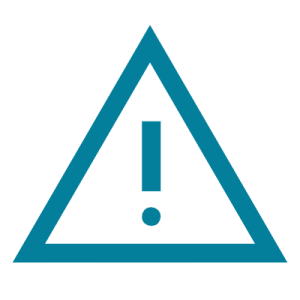6.1 der/die/das: bestimmte Artikel
Genus und Nomen/Grammatical Gender and Nouns
All nouns in German are classified grammatically as masculine, neuter, or feminine: “der” (masculine), “das” (neuter), “die” (feminine). They have a genus (grammatical gender).
When a noun refers to people, the grammatical gender usually matches the biological sex and is indicated by “die” or “der.” This creates an issue when it comes to gender-inclusive language. Have a look at the following table:
| Masculine | Feminine |
| der Mann (the man)
der Student (the student) |
die Frau (the woman)
die Studentin (the student) |
When we refer to things or concepts, the grammatical gender obviously has no relation to the biological sex. The following table gives a few examples:
| Masculine | Neuter | Feminine |
|---|---|---|
| der Computer | das Telefon | die Lampe |
| der Schnee | das Buch | die Sonne |
“die” is the plural article used for all genders: die Männer , die Frauen, die Bücher, die Telefone, etc.
Der bestimmte Artikel
Here is a summary of how to use the definite article “the” in German.
| Singular | Plural |
| der (m)
die (f) das (n) |
die |
Grammatical Gender and Pronouns
When we replace a noun with a personal pronoun, the personal pronoun reflects the gender of the noun it replaces.
Der bestimmte Artikel und Pronomen
Here is a summary of how the definite article aligns with personal pronouns:
| Bestimmter Artikel | Pronoun/Pronomen |
| der | er (he) |
| das | es (it) |
| die | sie (she) |
| die (pl.) | sie (they) |
Beispiele
- “er ” refers to “der Computer” because the grammatical gender of “Computer” is masculine.
- “sie” refers to “die Sonne” because the grammatical gender of “Sonne” is feminine.
- “es” refers to “das Buch” because the grammatical gender of “Buch” is neuter.
- “sie” refers to “Bücher” because “Bücher” is in the plural (plural of “Buch”)
Usually, the grammatical gender cannot be predicted from the form of the word. Therefore, it is recommended to learn the corresponding definite article along with each new noun.
Having said that, there are some rules that might help predict the grammatical gender of nouns based on the ending of a noun.
Beispiele
- Nouns that end in e, for example, “die Sonne ” or “die Lampe”, are usually feminine.
- Nouns that end in er, for example, “der Computer” or “der Wasserkocher “, are usually masculine.
The following noun endings also indicate grammatical gender:
| Ending | Masculine noun |
|---|---|
| -ing | der Lehrling (apprentice) |
| -ismus | der Tourismus |
| Ending | Feminine noun |
| -keit | die Möglichkeit (possibility, opportunity) |
| -heit | die Vergangenheit (past) |
| -ung | die Hoffnung (hope) |
| -schaft | die Mannschaft (team) |
| -ei | die Bäckerei (bakery) |
| -ion | die Situation |
| -in (Person) | die Lehrerin (female teacher) |
| Ending | Neuter noun |
|---|---|
| -chen | das Mädchen (girl) |
In German, -chen or -lein are diminutives. There‘s an old saying in German: „-chen und -lein machen alle Dinge klein.“ (-chen and -lein make all things small). When added to a word, the word changes its gender to neuter.
- der Tisch (table) becomes das Tischlein (little table)
- die Katze (cat) becomes das Kätzchen (little cat)
- das Buch (book) becomes das Büchlein (little book)
 Achtung!
Achtung!
All German nouns are capitalized, whether they are common nouns (objects, concepts) or proper nouns (names of people, countries, specific places).
“1.10” from Willkommen: Deutsch für alle by Claudia Kost and Crystal Sawatzky is licensed under a Creative Commons Attribution-NonCommercial-ShareAlike 4.0 International License, except where otherwise noted.

